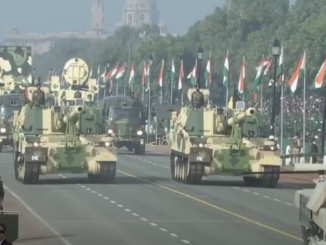 After delaying for months due to irregularities in the election process and shortcomings within electoral institutions, the results of the September 28, 2019 ballot to elect Afghanistan’s next president were announced on February 18, 2020. According to the Independent Election Commission of Afghanistan (IEC), the incumbent president, Ashraf Ghani won another term with slightly more than 50% of the total casted votes. Hours after the announcement of the election results, the country’s Chief Executive, Abdullah Abdullah, who according to the IEC, acquired a little more than 39% of the votes, dismissed the outcome by calling it “national treason” and a “coup against the democracy”. Abdullah, the leader of the Stability and Convergence team, also claimed victory based on clean votes and announced the formation of an inclusive government. The conundrum has forced the international community to refrain from commenting on the election results.
After delaying for months due to irregularities in the election process and shortcomings within electoral institutions, the results of the September 28, 2019 ballot to elect Afghanistan’s next president were announced on February 18, 2020. According to the Independent Election Commission of Afghanistan (IEC), the incumbent president, Ashraf Ghani won another term with slightly more than 50% of the total casted votes. Hours after the announcement of the election results, the country’s Chief Executive, Abdullah Abdullah, who according to the IEC, acquired a little more than 39% of the votes, dismissed the outcome by calling it “national treason” and a “coup against the democracy”. Abdullah, the leader of the Stability and Convergence team, also claimed victory based on clean votes and announced the formation of an inclusive government. The conundrum has forced the international community to refrain from commenting on the election results.
The timing of the announcement of the election results and subsequent developments have certain bearing on the ongoing Afghan peace process, which after more than a year of extensive negotiating sessions between the United States (US) and the Taliban had just shown a glimpse of hope. The US, with the help of regional powers, was able to convince the insurgent group to adhere to a seven-day reduction in violence, and the deal is due by the end of this month. This confidence-building measure is expected to give way to the main phase of the peace process i.e. ‘the intra-Afghan negotiations’. A list of significant issues had to be discussed between the Taliban and other Afghan stakeholders, including the debate of the Islamic Republic and Islamic Emirate, leading to crucial amendments to the current constitution, the delegation of political and economic authority to the Taliban leadership and the merger of Taliban fighters in the Afghan army. The formation of an inclusive Afghan negotiating team is imperative to undertake the expected talks with the Taliban, and the more inclusive and cohesive the team, the better would be the outcome for the supporters of the Republic. However, the formation of a comprehensive team seems almost improbable under the current impasse which may also impact the effectiveness of the expected ‘seven-day reduction in violence deal’.
Even before the conduct of the presidential elections, many experts suggested to make the peace process a priority by postponing the presidential ballot. There were also suggestions to make an interim government with the Taliban’s participation, which would have given a better chance to a comprehensive and successful peace process. Abdullah was willing to give preference to peace over elections. However, Ghani remained adamant in his stance and kept a major chunk of the country’s resources directed towards conducting the presidential election. The amount of ‘reforms’ the government brought in the electoral institutions remained unable to save the election process from corruption and deliver timely results.
A week before the September 29, 2019 presidential election, Afghanistan’s Foreign Minister, Salahuddin Rabbani warned that the election commission would be responsible for any tragedy that occurred due to electoral fraud. He also emphasized that the Presidential Palace had monopolized power in the last five years and weakened the system. The Taliban had also asked Afghans to refrain from casting their votes. Nonetheless, the ballot was conducted amid fear and violence resulting in the lowest turnout in all post-2001 presidential elections; out of 9 million registered voters, less than 2 million casted their votes.
In the following course, the ineptness of the IEC was reflected in their inability to deliver timely results and protect the process against fraudulent votes. The announcement of the preliminary results was originally scheduled for October 19, 2019, but IEC officials cited technical issues as reasons for the delay, and declared it on December 22, 2019, based on which Ghani was leading the count with more than 50% votes. The election process had already been made controversial as both the strongmen (Ghani and Abdullah) declared their victories before any indication from the IEC. Additionally, many leading presidential candidates led by Abdullah were calling on the election commission to invalidate the 300,000 controversial votes. Interestingly, on January 2, 2020, Afghanistan’s Independent Electoral Complaint Commission (IECC) said that its investigation may change the preliminary presidential election result. That did not happen, however, the claim that the IEC announced the final results of the elections without the approval of the IECC has marred the whole process with more controversy. Earlier, Abdullah in a decree to the Ministry of Interior barred the leaders of both the electoral commissions from leaving the country.
The rising controversies have also barred the international community from considering the election results. None of the regional countries, including Russia, China, Pakistan, Iran and India, have commented yet. US Deputy Special Representative for Afghanistan Reconciliation said, “… We understand that Chief Executive Abdullah and others felt the process was fraud and they are challenging the announcement.” Even before the elections, Russia, China and Pakistan, along with some other prominent Afghan civil society members, were advocating the idea of establishing an interim government to prioritize the peace process. Although both Abdullah and Ghani remained against the idea of the interim government, the latter has been critical towards the overall peace process. In a rare occurrence, the Afghan NSA Hamidullah Mohib was summoned by the US government after he criticized special envoy Zalmay Khalilzad and Mohib has reportedly been shunned by US officials in Washington and Kabul. Recently, in another instant when the Taliban refused to agree to a cease fire, but showed willingness to generate a “reduction in violence,” the administration in Kabul was divided: Abdullah welcomed the move while Ghani called it a bluff.
More interestingly, the Afghan presidential palace’s refusal to accept a prisoner swap deal before the commencement of intra-Afghan talks might put the seven-day reduction in violence deal in jeopardy. Ironically, the main ingredient (an inclusive Afghan negotiating team) of intra-Afghan talks is nowhere to be seen due to the ongoing conundrum, which might also add to the ineffectiveness of the expected seven-day reduction in violence deal because the Taliban would see no point in adhering to such a deal which has to pave the way for all Afghan negotiations, and whose main ingredient is missing. Additionally, for the Afghan insurgent group, the growing cleavage between and among various Afghan factions provides an opportunity to expand its influence by force, especially when the spring offensive session is just around the corner.
Whether the seven-day reduction in violence deal materializes or not, the unavailability of significant post-deal elements indicates that it would not yield the desired results. Under the circumstances, it is imperative for the US and regional powers to work towards settling the current impasse in the Afghan electoral process to sustain the hope of keeping the negotiated peace alive.




Be the first to comment